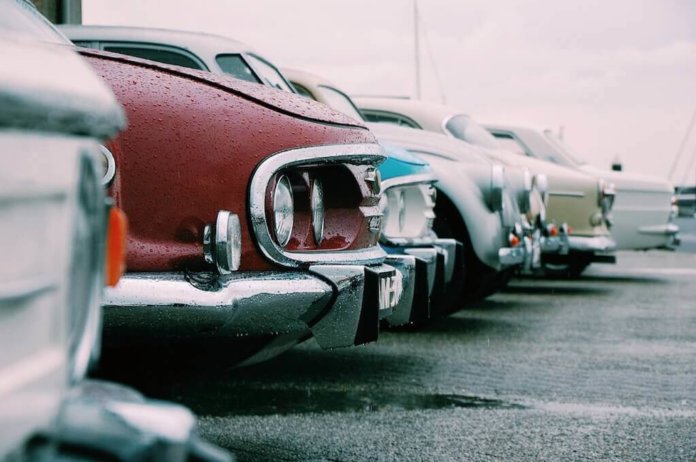
Car manufacturing companies are under constant pressure to keep up with the changing times. From the big cars of the 1960s and 70s to the sleeker, more fuel-efficient models of the 1990s and 2000s, changes have been significant and, in most cases, permanent. And now, as the industry undergoes a more fundamental shift away from fossil fuels towards hybrid and electric vehicles, car manufacturers will have to be more diligent than ever in meeting consumer demands.
Many of the leading auto manufacturers that must navigate these changing times are family-owned businesses. While we tend to think of these companies as faceless corporate giants, the reality is that there are a handful of business families who make key decisions that affect the entire industry.
Here are five of the leading family-owned car manufacturers to watch.
Hyundai
Country: South Korea
Revenue (2017): US$90.6 billion
Owning Family: Chung
Hyundai is the largest auto manufacturer in South Korea and one of the top five in the world. The Hyundai Motor Group is part of the larger Hyundai Group, which was founded by family patriarch Chung Ju-yung as a construction company in 1947. Two decades later, the car manufacturing division was created. In 1968, Hyundai produced its first vehicle, the Cortina, in conjunction with the Ford Motor Company. By the mid-1970s, Hyundai produced its own vehicle, the Pony, which debuted in 1975. In 1998, Hyundai acquired chief rival Kia Motors.
When the Hyundai conglomerate split into its various divisions in 1999, Chung Ju-yung’s eldest son Chung Mong-koo took the reins as CEO of the Hyundai Motor Group. Under his leadership, the company has ranked #75 in Forbes’ list of World’s Most Valuable Brands as well as #81 in Top Regarded Companies.
Hyundai has built its automotive empire on delivering sleek, stylish cars that are still affordable for most middle-class families. This is why the Hyundai Elantra is their highest-selling vehicle. The Elantra has come to be known as an excellent family car and a good all-around, mid-range sedan. Another top seller in a higher tier is the Sonata, characterised by its athletic and functional look.
Popular consensus seems to be that so long as Hyundai continues to provide quality affordable and fuel-efficient cars, they should be good in the long run. The company is preparing for the roads of tomorrow by coming out with an all-electric car that is expected to be one of most energy-efficient vehicles on the market.
BMW
Country: Germany
Revenue (2017): €98.7 billion
Owning Family: Quandt
BMW is another car manufacturing giant whose roots predate the invention of the automobile. Karl Rapp founded the company in March 1916 as a producer of aircraft engines. When Rapp left, the company was renamed Bayerische Motoren Werke (BMW), which translates as “Bavarian Motor Works”. The company gained a reputation for making quality motorcycles very soon. In 1932, they released their first self-designed automobile with the BMW 3/20, powered by a four-cylinder engine.
By the end of the 1950s, BMW was losing money and near bankruptcy. There was a proposal to merge the company with Daimler-Benz. However, the half-brothers Herbert and Harald Quandt increased their ownership stake and chose a different direction for the company. The Quandt family oversaw the production of a new series of vehicles they called the Neue Klasse (New Class). The series released beginning in 1962, went a long way in establishing BMW’s reputation for producing top quality sports sedans. Perhaps the best example of this was found in the BMW 2002, which went on to become the company’s most successful selling model of the time.
The Quandt family still controls BMW to this day. Stephan Quandt is the single largest shareholder – his holdings increased to 25.83 percent after he inherited his mother’s shares. This puts his holdings in the company at a value of $16.6 billion. A family spokesperson recently stated that there are no plans for the Quandt family to sell their stake in the company.
Ford
Country: United States
Revenue (2017): US$156.8 billion
Owning Family: Ford
The Ford family didn’t invent the automobile, but they can claim ownership of the concept of automobile mass production. When Henry Ford’s Model-T started to spike in popularity, he came up with the assembly line process in order to meet demand. Since then, Ford has been one of the iconic names of auto manufacturers worldwide.
Even though they no longer control the day-to-day operations, the Ford family still has a say in the company’s direction today. In January 1956, the Ford Motor Company became a publicly traded company, marking the first time the Fords did not solely own the company since its inception. However, the Ford family still wields its influence through Class B supervoting stock that gives them 40 percent of the common stock vote.
The biggest threat to the company came with the 2008 financial crisis, which required a U.S. government bailout in order to keep the U.S. giants afloat. The crisis also forced Ford to re-evaluate how they do business. Allan Mulally, recruited to save the company, introduced the “One Ford” strategy to restore the brand to automotive leadership by unifying its people, operations and products.
The result has been a remarkable turnaround. The Ford F-150 pickup truck and the Ford Escape compact SUV are two examples of vehicles that are extremely successful in their respective classes.
Toyota
Country: Japan
Revenue (2017): US$264.7 billion
Owning Families: Toyoda
Toyota is the third largest auto manufacturer in the world and an industry leader in alternative-fuel-vehicle production. The company was founded in 1937 by Kiichiro Toyoda, who strongly believed his family’s business should expand into the burgeoning field of automobile production. Kiichiro Toyoda stepped aside in 1950, prompting his cousin Eiji Toyoda to fill in as head of the Toyota Motor Corporation. Under his guidance, the company expanded to an internationally respected global brand. He also oversaw the launch of their signature luxury vehicle – the Lexus.
Throughout its history, Toyota has separated itself from Detroit’s Big Three (Ford, Chrysler and General Motors) not only in production quality but also in company culture. Where the American auto giants were content to subject their employees to the rigors of life on the assembly line, Toyota sought to keep employee morale high with regular exercise breaks. In 2001, they introduced “The Toyota Way” – a set of principles that emphasized respect for people and continuous improvement in the company’s management and production processes.
Toyota also pioneered new approaches to auto manufacturing, including lean manufacturing and just-in-time production. Seen as novel curiosities at first, countless car manufacturers worldwide have adopted them since.
Toyota has distinguished itself as a world leader in the production and sales of electric hybrid vehicles. Its signature hybrid vehicle, the Prius, has already sold more than six million vehicles worldwide. When factoring in the combined sales for all Toyota and Lexus hybrid vehicles, more than 10 million cars have been sold.
Volkswagen
Country: Germany
Revenue (2017): €230.7 billion
Owning Families: Porsche and Piëch
Volkswagen is perhaps the only car company founded out of a sense of societal economic inequity. Whereas the majority of German automobiles in the 1930s were targeted at the elite clientele, the German Labour Front decided to produce the Volkswagen, “the people’s car” in Germany. Following its launch in 1937, the solid yet affordable vehicle quickly became a huge hit both in Germany and around the world. It has continuously been recognised with automotive awards for its most popular models such as the Beetle, the Golf and the Jetta.
The company is still partially owned by the descendants of Ferdinand Porsche, who designed the very first Volkswagen products. The other co-owning family, the Piëch family, was significantly involved in the company’s latest rise to new heights. Ferdinand Piëch became chairman and CEO of the Volkswagen Group in 1983. Under his leadership, the company took an aggressive approach in developing a tiered product line. They purchased Lamborghini and Bentley and founded the Bugatti brand. In 2015, Piëch sold his stake in the company to relatives in order to keep the company ownership within the family.
In 1999, the Volkswagen Beetle was the fourth most influential car in the Car of the Century competition. With its current efforts at producing hybrid and fully electric vehicles such as the e-up! and the e-Golf, Volkswagen is well-positioned to remain relevant for many years to come.









